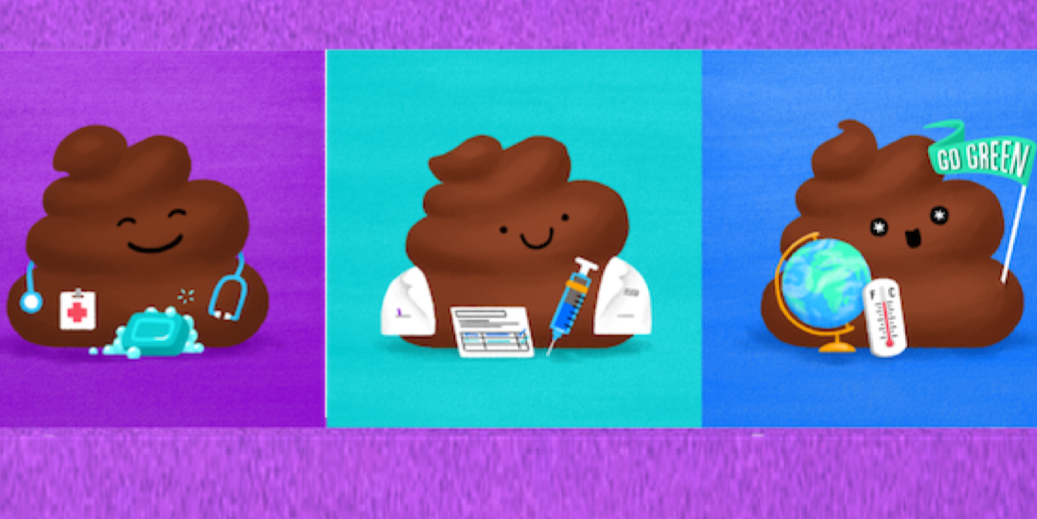Fifteen years of defeating diarrhea
It began with a premise: awareness is the first step to action. The DefeatDD Initiative facilitated a platform for intersectoral conversations to put diarrhea front and center in global health conversations, disarming squeamishness with humor.
Vaccine development and introduction
Strategic communications
Policy advocacy
Social media

Why PATH was chosen to do this work
In 2008, PATH staff met with national governments when vaccines against rotavirus, the deadliest form of childhood diarrhea, were on the cusp of being approved for global use.
Few stakeholders recognized rotavirus as a disease, but the problem of diarrhea was obvious and seemingly intractable. Decision-makers welcomed a vaccine against diarrhea with enthusiasm, but also wanted donors to understand and prioritize diarrhea as an issue. That meant investing in a suite of tools including, but not limited to, vaccination.
These conversations informed PATH’s approach to increasing demand for rotavirus vaccines under the umbrella of diarrheal disease: a recognizable challenge in high-burden settings and an underappreciated crisis among donors.
Breaking the poo taboo
In 2010, PATH launched the Defeat Diarrheal Disease Initiative (DefeatDD) website and social media channels, an awareness campaign with a simple premise: if we can’t talk about diarrhea, we can’t defeat it.
Stakeholders in the child health sector agreed: when we launched our first state-of-the-field report and issued a call to action against diarrheal disease, more than 100 partners signed on.
Encouraging people to talk about diarrhea, an uncomfortable topic, called for creative communication tactics. DefeatDD’s approach, employing a tone of humor and whimsy, became synonymous with the initiative and its resources from the start.
 1 of 5
1 of 5

Friends at the International Vaccine Access Center pose with DefeatDD toilet calendars. DefeatDD produced four calendars of crowdsourced content solicited through social media campaigns: toilet photos, caption contests, and the fan favorite, poo haikus.
2 of 5
Social media evolved over DefeatDD’s 15-year tenure, but the brand kept pace. In 2018, DefeatDD hosted an Insta-worthy immersive pop-up event, Take the Plunge, featuring videos of diarrheal disease prevention and treatment programs around the world.
3 of 5
Social media evolved over DefeatDD’s 15-year tenure, but the brand kept pace. In 2018, DefeatDD hosted an Insta-worthy immersive pop-up event, Take the Plunge, featuring videos of diarrheal disease prevention and treatment programs around the world.
4 of 5
DefeatDD’s first event, held at the Global Health Council Conference, featured tablecloths, cocktails, and conversations about poop. It was so popular that there was standing room only. Plenty of toilet facilities, though.
5 of 5DefeatDD was an early adopter of social media as an awareness-raising tool, first launching on Twitter/X and Facebook and later adding LinkedIn and Instagram. The team prioritized two-way communication with crowdsourced campaigns and interactive engagement; digital conversations became an extension of in-person events.
The Poo Haiku Challenge, our most popular digital campaign, received more than 100 submissions its first year and caught the attention of ABC and NPR. Poo Guru enjoyed a moment in the spotlight, too.
Advocates regularly looked to DefeatDD for resources to commemorate World Toilet Day, which included themes such as the “Universal Health RevoLOOtion” and “Don’t Stall.” World Toilet Day served as an annual hook for crowdsourcing contributions to DefeatDD’s toilet-shaped calendars, be they photos, captions, or haikus.
Promoting intersectoral collaboration
Diarrhea prevention and treatment tools are simple and cost-effective: vaccines; water, sanitation, and hygiene (WASH); nutrition and breastfeeding; and oral rehydration solution (ORS) and zinc. Delivering these tools together serve children best. But siloed funding streams make this challenging.

A DefeatDD entry for the #PublicHealthValentines campaign.
1 of 4 2 of 4
2 of 4
 3 of 4
3 of 4
 4 of 4
4 of 4
The primary objective of DefeatDD’s social media presence was to facilitate conversations between and among disparate sectors working on different pieces of the puzzle, sparking collaboration and shaping the global conversation toward integrated programs. Offline, DefeatDD founded the Health/WASH Network to brainstorm ways to coordinate efforts to shift policy toward integration.
A watershed moment came in 2013, when the World Health Organization (WHO) and UNICEF launched the Global Action Plan for Pneumonia and Diarrhea (GAPPD). DefeatDD developed communications resources, organized around the hashtag #MindTheGAPPD, to disseminate the gold-standard technical guidance on integrated efforts.
Over the subsequent years, the team worked alongside partners to co-publish reports that documented integration success stories.
Resources to inspire and inform
Although DefeatDD was housed at PATH, it belonged to all partners working in some capacity on diarrhea, providing resources and a platform for advocates at global and national levels to raise awareness about the issue. It produced compelling blogs, graphics, and award-winning videos about diarrhea challenges and solutions.
Eventually, DefeatDD’s state-of-the-field report went virtual as a companion site, with regular updates to reflect global, regional, and national trends.

Outside of Patna, Bihar State, India, PSI introduced DefeatDD to the Kumar family, who received a loan from PSI to build a family toilet. DefeatDD’s video about the Kumar family took Silver at the 39th Telly Awards.
1 of 2
DefeatDD’s state of the field report and French translation provided regularly occurring updates for advocates seeking data on global and national trends.
2 of 2The results
Deaths from diarrhea have fallen dramatically in the years since DefeatDD first asked advocates to join the movement. More than 120 countries have introduced vaccines against rotavirus, the tool that launched the initiative’s early days.
In its 15-year tenure, DefeatDD cultivated a highly engaged audience whose average time spent on a given webpage regularly exceeded the industry standard. Most impressively, DefeatDD convinced global health thought leaders to engage in its silliness for a cause, even when it meant delivering TED-style talks from toilet stalls.
Although the DefeatDD platform has sunsetted, the lifesaving work of partners will continue to require champions advocating on their behalf. And DefeatDD hopes that advocates will continue to make a stink until no child dies from diarrhea.